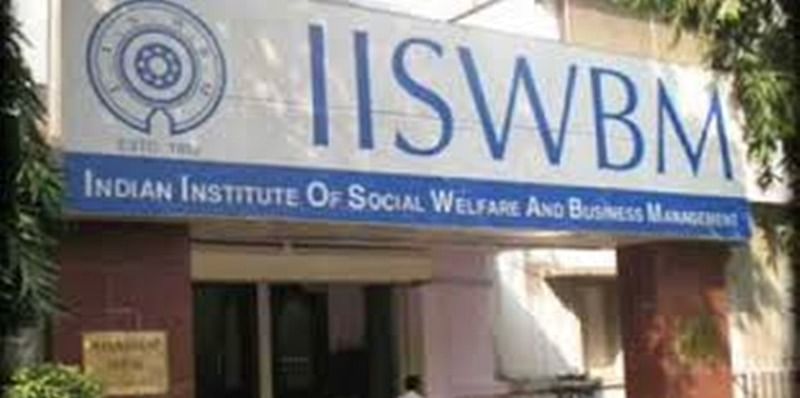MBA in Energy Management Syllabus and Subjects

MBA in Energy Management syllabus and subjects is a unique blend of management, analytical skills, and an emphasis given to innovative thinking. This programme focuses on creating a highly trained and skilled expert in energy management with an all-embracing overview, an international outlook, and the will to create an impact. The first year of MBA in Energy Management, an aspirant learns the core subjects, while in the second year, they move towards specialized and elective subjects.
Semester Wise MBA in Energy Management Syllabus
MBA in Energy Management syllabus is divided into four semesters over two years. MBA in Energy Management course provides holistic learning of the field of energy management and also focuses on practical learning through projects and internships. Students study core subjects in the first year and then move to elective subjects according to their interests in the second year.
Listed below is the semester-wise distribution of the syllabus:
MBA in Energy Management First Year Syllabus
Listed below are the MBA in Energy Management First Year Syllabus:
| Semester Ⅰ | Semester Ⅱ |
| Managerial Economics | Energy Audits and Energy Management |
| Advanced Data-Driven Decision Making | Oil and Gas Economics |
| Financial Accounting | Global Business Environment |
| Human Resource Management | Financial and Operations Management |
| Non-Renewable Energy Sources | Sustainability Standards |
| Governance and Corporate Sustainability | Project Management Suite |
| Business Statistics | Export-Import Management |
| Renewable Energy Sources | Operations Research |
MBA in Energy Management Second Year Syllabus
Listed below are the MBA in Energy Management Second Year Syllabus:
| Semester Ⅲ | Semester Ⅳ |
| ERP- Business Process Integration | Environmental Modelling and GIS |
| Global Strategic Management | Business and Social Impact Management |
| Electricity Regulatory Issues and Mechanisms | Dissertation |
| Advanced Energy Management and Six Sigma | Energy and Business Law |
| ISO 14001 and 50001 Certification | HSE for Power Industry |
MBA in Energy Management Subjects
MBA in Energy Management subjects include two types of subjects-one core and other elective subjects. Along with this, internship and project submission are there. Also, the learning in this course is done through group discussions and presentations prepared by the students. Listed below are the core and the elective subjects:
Core Subjects:
- Quantitative Methods
- Business Communication
- Organisation Behaviour
- Marketing Management
- Principals and Practices of Management
- Business Research Methods
- Human Resource Management
- Solar Power Development & Management
- Regulatory Framework in Power Sector
- Power Financial Management
- Strategic Management
- Executive Communication Pro
- Fuel & Water Resource Management
- Wind & Alternative Sources of Energy
- Power Pricing & Power Purchase Agreements
Elective Subjects:
- Hydro & Nuclear Power Resources management
- Distribution Automation and Smart Grid
- Green Transition & Smart Infrastructure
- Sustainability and Climate Change
- Global Power Business
- Risk Management & Insurance
MBA in Energy Management Course Structure
MBA in Energy Management course structure focuses on building holistic learning of the energy sector. In the first year, subjects are generic subjects studied in all MBA courses. While in the second-year subjects become specialised in the particular field, and also some subjects become elective. In this way, students can choose the subjects which are of interest to them.
The course structure is a mix of theoretical knowledge and practical use of this knowledge through projects, research papers, group discussions, and internships. The course structure includes:
- Core subjects
- Electives
- Ⅳ semesters
- Projects
- Research papers
- Surveys
- Seminars
- Practicals
- Thesis writing
MBA in Energy Management Teaching Methodology and Techniques
The teaching methodology can be very different for MBA in Energy Management. It involves a mix of classroom teaching and the real-world application of this knowledge through case study learning. This teaching methodology helps in building a comprehensive understanding of the energy sector. Through this methodology, students can understand the world of renewable energy, hydrocarbon, and so on. Some methodology techniques used by colleges are:
- Discussions
- Field trips
- Practical learnings
- Problem-based
- Projects
- E-learning
- Co-curricular activities
MBA in Energy Management Projects
Energy Management projects have many scopes and can be based on the study of numerous industries like the hydrogen cell industry, solar industry, waste management, etc. These projects help boost students' confidence by applying the practical use of their learnings and help them make better leaders and decision-makers. These projects can be of many types as the application of energy management is in many fields.
Listed below are some popular projects:
- Energy Management in Commercial Buildings
- Implementation of Solar Battery Charger Circuit
- Improving Storage of Renewables
- Solar Powered Fans
- Water and Wastewater pollution management
MBA in Energy Management Reference Books
Listed below are the reference books for energy management:
| Books | Authors |
| Handbook of solid management | McGraw Hill |
| Environmental Pollution and Its Control | Jeffrey I and P. Vesiland |
| Heat Transfer - A Basic Approach | M.N. Oziesik |
| Understanding Environmental Pollution | K.M. Mital |
| Solar Passive: Building Science and Design | M.S. Sodha |




















